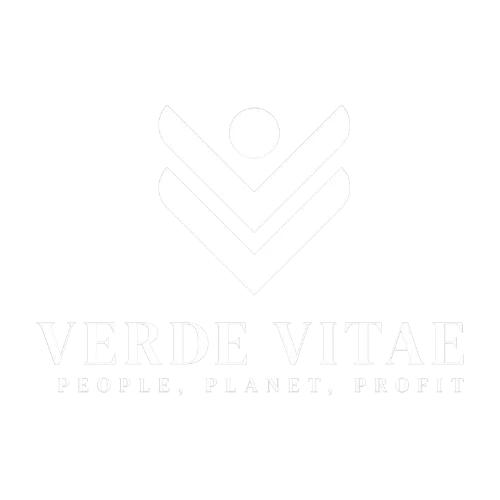Insights
Educate | Inspire | Motivate

Unleashing Team Potential: The Science Behind High-Performing Teams
Why do some teams outperform others, even with similar talent and resources?
The answer lies not in individual brilliance, but in how teams work together. Research from Google’s Project Aristotle revealed that psychological safety, not IQ or experience, is the #1 predictor of team success.
In this blog, we’ll explore:
The neuroscience of trust (and how it boosts performance)
Why diversity drives innovation (with real-world examples)
Practical strategies to transform your team’s dynamics
Case studies from NASA, Pixar, and elite sports teams
Whether you’re leading a corporate team or a wellness initiative, these insights will help you build a culture where teams thrive.
The Hidden Power of Psychological Safety
What Google Discovered About Elite Teams
Google spent years studying 180+ teams and found that psychological safety, the belief that you won’t be punished for speaking up, was the key differentiator. Teams with high psychological safety:
✔ Take more risks (leading to innovation)
✔ Admit mistakes faster (solving problems early)
✔ Collaborate more effectively (no fear of judgment)
Corporate wellness tip:
Run anonymous pulse surveys asking:
"Do you feel safe to voice concerns in this team?"
"Are mistakes treated as learning opportunities?"
Diversity = Smarter Teams (Here’s Why)
A Harvard Business Review study found that diverse teams:
Make better decisions 87% of the time
Solve problems faster (thanks to varied perspectives)
Drive 19% higher revenue (McKinsey data)
Real-world example:
When NASA assembled the Apollo mission team, they didn’t just pick the smartest engineers, they built a team with scientists, pilots, and even artists to think differently.
Action step:
Audit your team’s diversity (skills, backgrounds, thinking styles)
Encourage reverse mentoring (junior team members share fresh insights)
3 Science-Backed Ways to Boost Team Performance
1. The Two-Pizza Rule (Amazon’s Secret)
Jeff Bezos insists teams should be small enough to feed with two pizzas. Why?
Fewer people = clearer communication
More accountability
Faster decision-making
Try this:
Break large teams into smaller squads (5-7 people) with clear goals.
The Feedback Sandwich (That Actually Works)
Instead of blunt criticism, use this NLP-inspired framework:
Positive start ("Your presentation was really engaging…")
Constructive feedback ("...next time, let’s dive deeper into the data")
Encouraging close ("You’ve got a knack for storytelling!")
Why it works:
Our brains respond better to balanced feedback (neuroscience proves it!).
Failure Post-Mortems (Pixar’s Genius Hack)
Pixar holds failure meetings where teams dissect flops without blame.
How to apply it:
After a project, ask:
"What surprised us?"
"What would we do differently?"
"What did we learn?"
Case Study: How NASA’s Apollo Team Avoided Disaster
When Apollo 13’s oxygen tank exploded, NASA’s team collaborated under extreme pressure to bring astronauts home. Key takeaways:
Trust was non-negotiable (ground control trusted astronauts’ instincts)
Clear roles = no confusion (each person knew their responsibility)
Psychological safety saved lives (engineers spoke up without fear)
Wellness angle:
Stress-test your team’s trust levels with simulated crisis exercises.
Your 7-Day Team Transformation Challenge
Monday: Hold a no-blame feedback session
Tuesday: Introduce one diversity-boosting practice
Wednesday: Run a 5-minute gratitude huddle
Thursday: Test the two-pizza team rule
Friday: Share a failure story + lesson learned
Weekend: Reflect, Where did we improve?
Teams Thrive When People Feel Safe
High-performing teams aren’t built overnight, but small, consistent changes create lasting impact. Start today by:
Prioritising psychological safety
Embracing diverse thinking
Turning failures into growth
Why do some teams outperform others, even with similar talent and resources?
The answer lies not in individual brilliance, but in how teams work together. Research from Google’s Project Aristotle revealed that psychological safety, not IQ or experience, is the #1 predictor of team success.
In this blog, we’ll explore:
The neuroscience of trust (and how it boosts performance)
Why diversity drives innovation (with real-world examples)
Practical strategies to transform your team’s dynamics
Case studies from NASA, Pixar, and elite sports teams
Whether you’re leading a corporate team or a wellness initiative, these insights will help you build a culture where teams thrive.
The Hidden Power of Psychological Safety
What Google Discovered About Elite Teams
Google spent years studying 180+ teams and found that psychological safety, the belief that you won’t be punished for speaking up, was the key differentiator. Teams with high psychological safety:
✔ Take more risks (leading to innovation)
✔ Admit mistakes faster (solving problems early)
✔ Collaborate more effectively (no fear of judgment)
Corporate wellness tip: Run anonymous pulse surveys asking:
"Do you feel safe to voice concerns in this team?"
"Are mistakes treated as learning opportunities?"
Diversity = Smarter Teams (Here’s Why)
A Harvard Business Review study found that diverse teams:
Make better decisions 87% of the time
Solve problems faster (thanks to varied perspectives)
Drive 19% higher revenue (McKinsey data)
Real-world example:
When NASA assembled the Apollo mission team, they didn’t just pick the smartest engineers, they built a team with scientists, pilots, and even artists to think differently.
Action step:
Audit your team’s diversity (skills, backgrounds, thinking styles)
Encourage reverse mentoring (junior team members share fresh insights)
3 Science-Backed Ways to Boost Team Performance
1. The Two-Pizza Rule (Amazon’s Secret)
Jeff Bezos insists teams should be small enough to feed with two pizzas. Why?
Fewer people = clearer communication
More accountability
Faster decision-making
Try this:
Break large teams into smaller squads (5-7 people) with clear goals.
2. The Feedback Sandwich (That Actually Works)
Instead of blunt criticism, use this NLP-inspired framework:
Positive start ("Your presentation was really engaging…")
Constructive feedback ("...next time, let’s dive deeper into the data")
Encouraging close ("You’ve got a knack for storytelling!")
Why it works:
Our brains respond better to balanced feedback (neuroscience proves it!).
3. Failure Post-Mortems (Pixar’s Genius Hack)
Pixar holds failure meetings where teams dissect flops without blame.
How to apply it:
After a project, ask:
"What surprised us?"
"What would we do differently?"
"What did we learn?"
Case Study: How NASA’s Apollo Team Avoided Disaster
When Apollo 13’s oxygen tank exploded, NASA’s team collaborated under extreme pressure to bring astronauts home. Key takeaways:
Trust was non-negotiable (ground control trusted astronauts’ instincts)
Clear roles = no confusion (each person knew their responsibility)
Psychological safety saved lives (engineers spoke up without fear)
Wellness angle:
Stress-test your team’s trust levels with simulated crisis exercises.
Your 7-Day Team Transformation Challenge
Monday: Hold a no-blame feedback session
Tuesday: Introduce one diversity-boosting practice
Wednesday: Run a 5-minute gratitude huddle
Thursday: Test the two-pizza team rule
Friday: Share a failure story + lesson learned
Weekend: Reflect—Where did we improve?
Final Thought: Teams Thrive When People Feel Safe
High-performing teams aren’t built overnight, but small, consistent changes create lasting impact. Start today by:
Prioritising psychological safety
Embracing diverse thinking
Turning failures into growth
Need help building a resilient team? Explore our corporate wellness programmes designed to boost collaboration, trust, and performance.
Learn more about EQ workshops, coaching, and tailored leadership programmes with Verde Vitae.
If you liked this quick notes article you might like this one too:
Top 5 Corporate Wellness Trends in the UK for 2025
Authentic Leadership: How to Lead with Confidence and Stay True to Yourself
What Our Customers Say
James Holmes

Partnering with Verde Vitae has been a game-changer for our organisation. Their holistic approach to wellness has not only improved our team's overall health but also boosted productivity and creativity. The mindfulness and stress management programmes have been particularly transformative, leading to a more harmonious and efficient workplace. We're seeing tangible results in employee satisfaction and performance.
James Blackwood

Verde Vitae transformed our approach to sustainable business practices whilst maintaining our bottom line. Their strategic guidance helped us implement eco-friendly initiatives that not only reduced our carbon footprint but also resonated strongly with our customers.
Within six months, we saw a 30% reduction in operational costs and a significant boost in brand reputation.
Sarah Mitchell

The Emotional Intelligence Workshop was nothing short of transformative for our leadership team. In just one day we gained practical tools for understanding and managing workplace dynamics that we've used every day since.
They balanced theory with hands-on exercises, making complex concepts remarkably accessible. Most importantly, we've seen tangible improvements in team communication, conflict resolution, and overall workplace morale.

Cultivating a High-Performing Workplace Culture
Maximise Profits through Employee Wellness Investments
© 2024 Verde Vitae - All Rights Reserved,
Website built and developed by Mexital Consulting
